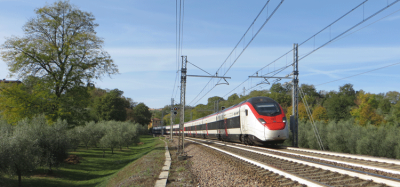ETF says that transport workers were forgotten in European Commission’s Mobility Strategy
Posted: 10 December 2020 | Global Railway Review | No comments yet
ETF argues that transport policies have never been able to succeed in achieving climate goals because they continuously put transport workers and their working conditions to the side.


Transport workers are the sector’s ‘most valuable asset’, reads the newly published Sustainable and Smart Mobility Strategy. However, the European Transport Workers’ Federation (ETF) has said that proposed initiatives fall short in matching this statement.
ETF – which represents five million workers across all modes of transport – reiterates that, to fulfil the goals of the strategy and enable the transition to greener transport, it is essential to address social issues and foster worker engagement.
The European Commission’s Strategy, an initiative within the European Green Deal, will shape transport policies for years to come – with the intent to achieve climate-neutrality by 2050. However, ETF argues that transport policies have never been able to succeed in achieving climate goals because they continuously put transport workers and their working conditions to the side.
Join our free webinar: Rail cyber-security in a time of technological and regulatory transformation
Join our expert panel, including speakers from Nokia and Siemens Mobility, to explore the critical convergence of cybersecurity and 5G rail comms.
Date: 3 Dec | Time: 15:00 GMT
Can’t attend live? No worries – register to receive the recording post-event.
2020 has been an extremely turbulent year for the transport industry and its workers. The strategy aims to emerge from the crisis with a stronger and more resilient transport sector, but ETF has said that this leaves out the direct impact that the pandemic has had on workers.
Thousands of transport workers lost jobs due to lockdown measures, while thousands of others were burdened with additional work, stranded away from home, exposed to health risks or deprived of necessary facilities. ETF argues that many of these shortcomings were due to the cracks in transport policies and their lack of a social dimension.
ETF’s General Secretary, Livia Spera, said: “The Commission makes great strides in assessing long-term social issues in the transport sector, promising to consider strengthening the legislative framework on conditions for workers, as well as clarifying and enforcing applicable social rights. Regrettably, however, the action plan is void of details on how this commitment would be implemented. The document also states that providing higher social standards would contribute to the attractiveness of the sector, but it fails to provide concrete steps to accomplish this crucial objective.”
ETF suggests that what is needed is a concrete action plan to shape the future of European transport in a socially sustainable manner. ETF will keep a close eye on the European Commission’s implementation of the strategy to ensure that the workers are indeed treated as the sector’s ‘most valuable asset’.
OUT NOW: The Definitive Guide to Rail’s Digital Future
The rail industry is undergoing a digital revolution, and you need to be ready. We have released our latest market report, “Track Insight: Digitalisation.”
This is not just another report; it’s your comprehensive guide to understanding and leveraging the profound technological shifts reshaping our industry. We move beyond the buzzwords to show you the tangible realities of AI, IoT, and advanced data analytics in rail.
Discover how to:
- Optimise operations and maintenance with real-time insights.
- Enhance passenger services through seamless, high-speed connectivity.
- Leverage technologies like LEO satellites to improve safety and efficiency.
Featuring expert analysis from leaders at Nomad Digital, Lucchini RS, Bentley Systems and more, this is a must-read for any rail professional.
Related topics
Coronavirus/COVID-19, Sustainability/Decarbonisation, The Workforce
Related organisations
European Commission (EC), European Transport Workers’ Federation (ETF)







